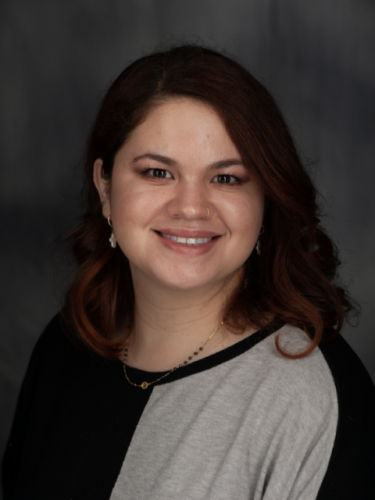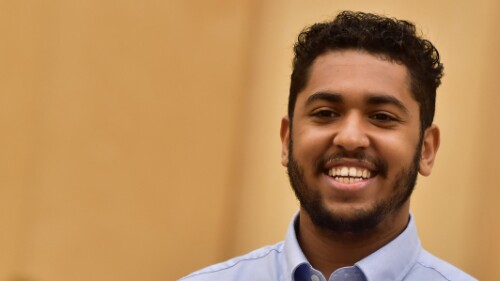Meet Astrid!
Dr. Astrid N. Sambolín Morales is an Assistant Professor in Kent State Online’s 100% Online Master of Education degree in Cultural Foundations. She received her PhD in Educational Equity and Cultural Diversity from the University of Colorado Boulder and completed a postdoctoral fellowship at the University of Pennsylvania. Her research provides a more nuanced picture of the agency, resistance, and empowerment enacted by displaced Puerto Rican m(others) in the U.S., and her work was funded by several grants, including the University of Colorado Natural Hazards Center, the BUENO Center for Multicultural Education, the URBAN Research Network, and the NAEd Spencer Foundation.
Read on for a short interview with Dr. Sambolín Morales.
What makes the online Cultural Foundations program at Kent State University stand out? What are the benefits of this program? Who is it for?
I think the Cultural Foundations of Education program does a really good job of providing foundational courses to explore education through a multidisciplinary approach while also giving students the flexibility to tailor their experience to their specific interests and goals. We have students with experience in P-12 education, higher education, and community-based organizations, among others. Given the wide range of expertise our faculty and students bring to the program, graduates can obtain a degree they can mold to meet their specific needs and contexts. Currently, we are very excited about our re-envisioned Master of Education (M.Ed). program, which will launch in Fall 2024. The program is available 100% online and geared toward professionals who are interested in leadership roles.
How much real-world experience is used in your instruction/lessons?
My objective is to provide students with foundational readings and materials while also providing spaces for them to find, read, and discuss texts that align with their specific lines of inquiry. In my experience, this approach provides students with more authentic, meaningful experiences. The assignments for my classes also give students the opportunity to apply what they are learning to their current contexts. For example, policy briefs give students the opportunity to conduct research and provide recommendations for policy change in a context/institution of their choosing. For the new M.Ed. program, I will be teaching a methods course focused on community-engaged inquiry, where real-world experiences/contexts are front and center. Students will have the opportunity to learn how to conceptualize, collect data, and engage in preliminary analysis using approaches that support them as they engage in research with communities rather than on them.
Tell us about your background in the field.
My journey to Cultural Foundations of Education was circuitous. I started my Ph.D. in Educational Equity and Cultural Diversity with a focus on emergent bilinguals’ experiences in U.S. classrooms. However, Hurricane Maria’s landfall in Puerto Rico, where I was born and raised, was a traumatic event that changed my trajectory and made me take a closer look at the educational experiences of mothers outside of formal education spaces. Thus, I began engaging in research with an ethnographic approach to capture the experiences of Puerto Rican women advocating for their children’s education and engaging in invisible, taken-for-granted practices for their family’s well-being and their own. My work began to take a more sociological turn, influenced by the scholarship of Evelyn Nakano-Glenn, Patricia Hill Collins, and Eduardo Bonilla-Silva, among others. I became particularly interested in exploring issues of race, language, and identity in PoC’s educational experiences. Currently, I’m documenting an informal learning space where Latine women in Akron come together to expand their Community Cultural Wealth for their children’s and families’ success, and I am partnering with other faculty at Kent State and Akron non-profits to create a community center designed with and for the community. At this point, my research interests have evolved to include qualitative methods, research-community partnerships, Community Cultural Wealth, and Critical Pedagogy.
Anything additional you would like to include?
I am proud of our efforts to provide a program that centers issues of equity and social justice in education. I think one of the components that attract our students to us is the fact that they get to grapple with questions and reflect on experiences that shape them, both at academic/professional and personal levels. Education shapes our identities, how we navigate the world, and how we perceive ourselves and others. Having the opportunity to understand and analyze the issues addressed in Cultural Foundations of Education, issues that students from minoritized communities typically do not have the space to unpack before graduate school, can be deeply meaningful and transformative. I know it was for me.
Enroll today in the Online Master of Education in Cultural Foundations at Kent State University
The Online Master of Education degree in Cultural Foundations engages students in the exploration of education through a range of disciplinary and interdisciplinary perspectives from the humanities and social sciences.
Students examine the social contexts of education with particular emphasis on structural inequities; issues of access and the distribution of educational opportunity; normative considerations about the purposes of education; and the transformative potential of education. Students learn to use these perspectives to identify problems of practice through their work as educators and leaders in communities, cultural organizations, and educational organizations. To address these problems of practice, students learn to conduct community-engaged inquiry in partnership with stakeholders and communities.
Graduates of the program will be able to:
- Demonstrate an understanding of the social, cultural, economic, and political assumptions shaping educational policies and reforms in the United States and other societies.
- Understand the nature of the democratic challenge for schooling in answering such foundational questions as: “What should be taught?” “Who should be taught?” and “Who should teach?”
- Demonstrate an understanding of the convergence of social class, race, gender, sexual orientation, and disability as barriers to and opportunities for educational change, domestically and internationally.
For more information on Kent State’s Online Master of Education in Cultural Foundations, visit https://onlinedegrees.kent.edu/degrees/master-cultural-foundations.






